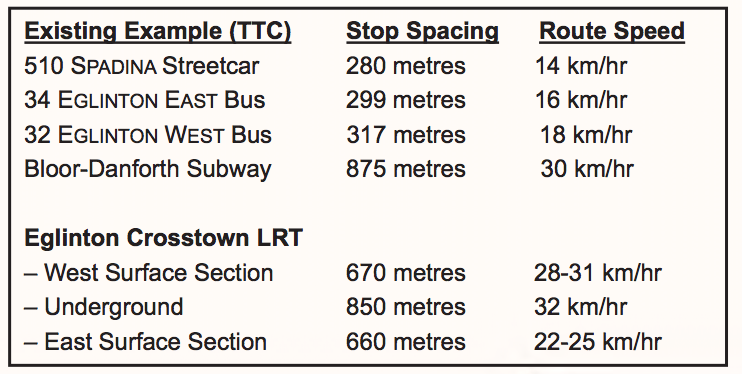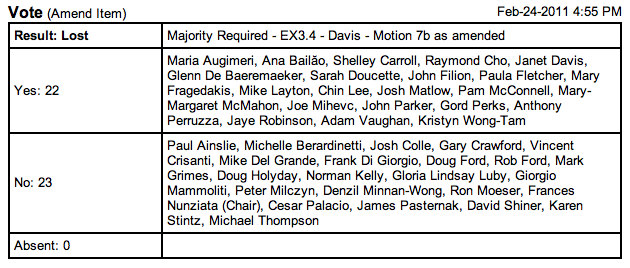Here’s the story, as advanced by Councillor Gord Perks and reported this weekend by the Toronto Star: That $774 million budget gap we’re all freaking out about? The one that has us talking sincerely about de-flouridinating our drinking water and shutting down parks? The one that’s so severe that it’s led to the City’s Budget Chief carrying around a plastic State Farm-branded piggy bank that he pulls out and shakes whenever one of his colleagues starts talking about programs that might potentially require more City spending? Turns out it might not be a real figure.
In actuality, the real budget pressure for 2012 — thanks to remaining, recently-discovered 2010 surplus dollars and an anticipated surplus for 2011 — might be significantly less. Like $331 million less.
But if we’re not actually looking at three-quarters-of-a-billion-dollars of “budget pressure,” why does that figure keep coming up? The Star’s Paul Moloney explains:
Critics accuse the Ford administration of exaggerating the city’s money woes to cow citizens into going along with serious cuts.
“I think the mayor is trying to create a political climate that suggests that the City of Toronto government is broken,†said Councillor Gord Perks, a key budget figure in the old David Miller administration.
“The kind of damage that Rob Ford wants to do to services Torontonians rely on can only be achieved if he terrorizes the public into believing we need to do it,†Perks said.
via City budget gap exaggerated, critics say | Toronto Star.
At Toronto Life, John Michael McGrath links this kind of  manufactured-crisis strategy to Naomi Klein’s Shock Doctrine, a sentiment backed up by blogger Sol Chrom, who writes, “Whose interests are served by all this manufactured hysteria around the budget? Apocalyptic numbers and phrases get thrown around and amplified by the transmitters in the media, and soon the sense of crisis is so acute that the stage is set for extraordinary measures.”
Extraordinary measures. Like library closures. Like transit cuts. Like service cuts. You might remember that the Mayor’s Office actually justified their use of previous-term surplus funds to close the 2011 budget gap because it would  mean they had “unmasked the true financial condition for all to see. The 2012 budget forecast reflects the true gap between the city’s revenues and spending habits.”
At The Grid, Ed Keenan contributes a great primer on how the city’s budget process works, and underscores that this year’s budget gap isn’t unique: the previous council dealt with initial shortfalls that were even larger and dealt with them without slash-and-burn service cuts:
[G]oing into the 2010 budget season, David Miller faced a projected budget shortfall of more than $800 million, and he managed not only to balance the budget without cutting any services at all, but to eventually show a huge surplus. So why is the somewhat smaller shortfall that Ford faces an emergency? Why would this, lesser crisis, require considering slashing whole government departments?
via From $350 million surplus to $774 million deficit in one Ford year? | The Grid TO.
But so what? Even if the budget gap is only the $443 million Perks says it could be, that’s still a huge number. And isn’t it time that we got our fiscal house in order and stop with these annual budget games? Shouldn’t Council’s left-wingers know better than to suggest we get through 2012 with yet another short-term, unsustainable fix?
John Lorinc is asking for a more proactive approach from Council’s Left. In his Spacing column this week, he calls on opposition councillors to lay out a “Plan B” budget, proposing an alternative to spending cuts instead of just criticizing the mayor and his allies. It’s not a bad sentiment, but he also adds this: “By the way, if a Plan B hinges on an unspecified Provincial bail-out, it automatically fails the smell test.”
Okay, yeah, it’s not likely that the McGuinty government — much less a prospective Hudak government in the fall — will be willing to cough up new subsidies to the City of Toronto when they’re facing a giant-sized debt and deficit all their own, but to ignore the role the province must play in righting amalgamated Toronto’s financial ship is not realistic. The City’s annual deficit became structural the day Mike Harris cut the provincial TTC operating and capital subsidies. Without a return to a fairer funding model — which will require strong intergovernmental advocacy efforts from the Mayor and Council — the only workable long-term Plan B-type solutions will have to involve politically toxic revenue drivers like a return to something like the Vehicle Registration Fee or even — horror! — a Municipal Sales Tax.

